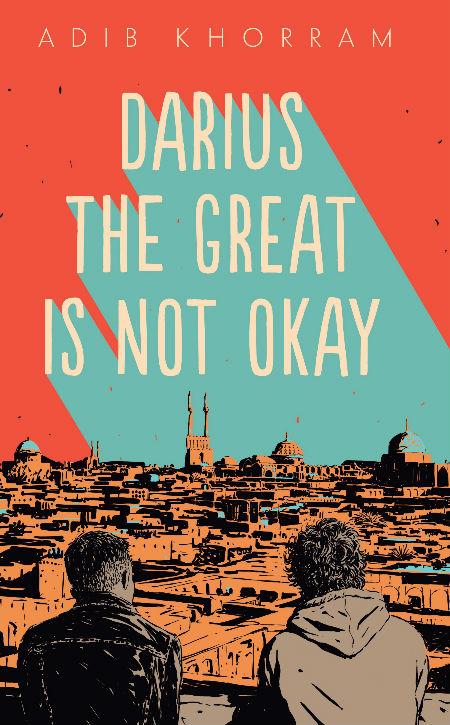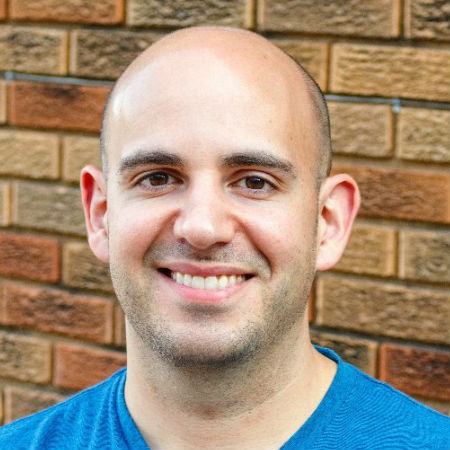
Growing up isn’t easy.
But this feat of transitioning into adulthood from childhood is made all the more complicated when you have your feet in multiple worlds, none of which really seem to go together.
Darius Kellner, an Iranian-American 16-year-old from Portland who’s obsessed with tea-making, Star Trek and Lord of the Rings is all too intimately acquainted with this fact.
He is not only straddling a cultural divide, with a blue-eyed, blond-haired American dad (Stephen) and an Iranian mother (Shirin), but he is also not one of the in-crowd, or any group really at school, and is being treated for depression, a genetic “gift” from his father, who seems remote and demanding and not at all sympathetic to Darius’s plight.
The only commonality they seem to share are their nightly Star Trek viewings, with Darius commenting that the only time he and Stephen Kellner the Übermensch (Germanic superman) feel like an actual father and son.
Those 47 minutes are also one of the few times Darius feels like he belongs, anywhere, and he guards them jealously, growing alarmed when his eight-year-old sister Laleh decides to join the ritual.
“Dad and I both took medication for depression.
Aside from Star Trek—and not speaking Farsi—depression was pretty much the only thing we had in common. We took different medications, but we did see the same doctor, which I thought was kind of weird. I guess I was paranoid Dr. Howell would talk about me to my dad, even though I knew he wasn’t supposed to do that kind of thing. And Dr. Howell was always honest with me, so I tried not to worry too much.” (P. 28)
His life is one endless sense of feeling that he doesn’t measure up in any sphere, a self-perception compounded again and again by school bullies, known as the Soulless Minions of Orthodoxy – Darius knows if he was more “normal”, he’d likely fit in better but he has no desire to change who he is, regardless of the treatment from bullies or his dad – his father, and a whole host of external pressures.
If this ill-at-ease with life mix isn’t bad enough, Darius suddenly finds himself travelling to Iran to see his grandparents, Babou and Mamou, one last trip before his mother’s father succumbs to the brain cancer which is slowly sapping the life from a man Darius really barely knows.
Like so many trips away from the everyday, this trip proves to be life-changing for Darius who gets to know his grandparents, his wider family and his heritage far better while at the same time finding the two things he has wanted all his life – a best friend in the form of Sohrab and an understanding with his father that he previously felt was impossible beyond his reach.
That’s a lot of change for one teenage boy on one trip away from home but then the teenage years are often nothing but change so the pace of Darius transformation rings authentic and true in ways that anyone who recalls that messy period between childhood and adulthood will immediately identify with (and if you’re in the core demo for this book, which is after all, teenagers, it’s likely you are living this truth in ways that Darius would totally understand.)

The joy of reading Darius the Great is Not Okay, and it is one of those books that is a liberating joy to reach no matter your age, is how real and true it all feels.
As a person who grappled with reconciling my Christian upbringing with my homosexuality during the formative teenage years, and who understands the tension of holding so many conflicting balls in the air at one time and feeling like, no matter what, you’re doing it badly, I read this book with a growing sense that I knew Darius.
Here was my voice, my experience from all those years ago, sprung to life with the kind of self-effacing, doubting honesty that comes with the territory of the challenging teenage years, and which feels emotionally-naked and straight to the heart in a way that you really have to fight to hang onto as an adult when it’s all too easy to let all kinds of things crowd in to cloud your perception.
Darius, who it is intimated may be gay though that is never directly addressed with Khorram eluding in ways beautifully, deeply poetic that the friendship with Sohrab may have a dimension that neither boy can admit to or explore, doesn’t of course perceive everything correctly – there is the small matter of his dad who is not who Darius thinks he is, in the best way possible – but when he lands it , he lands it, and you cheer him on, understanding that he is making real transformative headway, the kind that sets you beautifully for life.
“I didn’t know how to say good-bye.
But then Sohrab pulled me and hugged me.
He didn’t kiss me on the cheeks like a Persian.
He didn’t slap me on the back like a Soulless Minion of Orthodoxy either.
He held me. And I held him.
And then he sighed and pulled away.
He gave me this sad smile.
And that was it.
Maybe he didn’t know how to say good-bye either.
I loved Sohrab.
I really did.
And I loved being Darioush to him.
But it was time to be Darius again.” (PP. 297-298)
Of course, Darius, known as Darioush in Iran, rarely feels like he is transforming anything but he is, and as he cooks and brews tea with his grandmother, and gets to know his grandmother better, all which celebrating major cultural milestones like Nowruz which the author likens, in part, to Christmas for Iranians, he comes to understand like we all do, that life is rarely what we expect it’s going to be.
Through all these changes, Darius finds his cultural identity confirmed – Darius the Great is Not Okay is, among other things, a love letter to the beauties and intricacies of Iranian culture and particularly to the Zoroastrian faith of which Darius’s family is a part – and just as importantly, his self-worth and value confirmed, not just by his family but by Sohrab who accepts wholeheartedly and unconditionally in a way no one else ever has.
The power of this remarkably insightful book, whose prose breathes with the sweetness and lyricism of the Iranian culture that infuses it, is that it is honest about life, its joys and its challenges, honest, liberatingly so, about depression and how it affects you, and truthful about the way many of us are straddling multiple worlds growing up, a feat that would daunt anyone but feels even more overwhelming when you’re still try to figure out how life works at some fairly basic levels, let alone the more complicated stuff.
If you have ever felt like you don’t get life and can’t seem to knit together its disparate parts and influences in a way that makes, or begins to make, cohesive sense, read Darius the Great is Not Okay.
In this wholly-effecting, bright, light but deeply honest book, you will find a protagonist to fall in love with, to identify deeply with and to relate to in ways that will make you realise the contentment and deep, enriching sense of self that comes from finding out who you are, why you are matters and bringing that all together in life that, finally, makes far more sense than it used to.